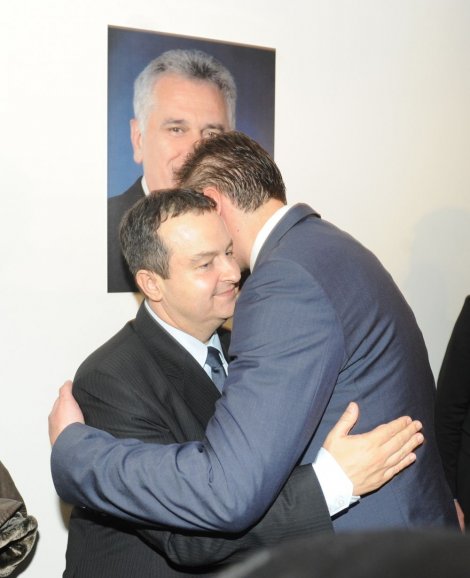
Serbia after the elections: What are the Implications for the Region?
March 21, 2014 02:00 pm | March 21, 2014 04:00 pm
Central European Policy Institute
Bratislava, Slovakia
Klariská 12, Bratislava, Slovakia
 BFPE’s Marko Savkovic will on Friday, 21 March 2014, take part in a public debate hosted by Central European Policy Institute – CEPI, entitled “Serbia after the elections: What are the Implications for the Region?”. The debate will take place in CEPI premises, Klariska street 14, Bratislava.
BFPE’s Marko Savkovic will on Friday, 21 March 2014, take part in a public debate hosted by Central European Policy Institute – CEPI, entitled “Serbia after the elections: What are the Implications for the Region?”. The debate will take place in CEPI premises, Klariska street 14, Bratislava.
As the CEPI invitation reads, recent consensus on EU integration and a pragmatic approach on Kosovo removed the main cleavage of politics in Serbia over the last decade. As these lines of division become blurred, what are the new defining markers in Serbia’s political scene? Are good relations with Bosnia and other neighbours part of this new consensus? Our panellists will also discuss the possible implications of the Serbian elections results for the region and on the process of normalization of relations with Kosovo.
Chair of the panel:
- Milan Nič, Executive Director, Central European Policy Institute
Panellists:
- Roman Hlobeň, Director of South-Eastern Europe and Turkey Department, Ministry of Foreign and European Affairs of the Slovak Republic
- Tomasz Żornaczuk, Senior Research Fellow on the Western Balkans, Polish Institute of International Affairs
- Marko Savkovic, Programme Coordinator, Belgrade Fund for Political Excellence
- Branislav Nesovic, Programme Director, NGO Aktiv, northern Mitrovica
Also in Bratislava, Marko will be representing BFPE at the workshop organized within the project “Thinking for Governance” (T4G), “Visegrad for Strengthening Democracy in the Western Balkans: Slovakia’s Experience with Cooperation between Civil Society and Public Administration”. T4G is a project lead by Polish Institute of International Affairs, where BFPE is a partner organization.








